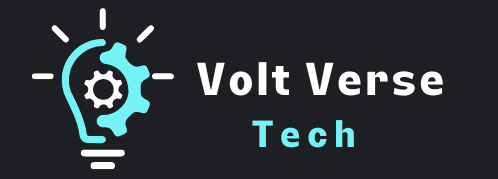Uses of Artificial Intelligence in Daily Life
In today’s fast-paced world, artificial intelligence (AI) has become an integral part of our daily lives, significantly impacting various aspects of our routines. AI is not just a technological buzzword; it’s a revolutionary force that enhances efficiency, convenience, and productivity in our everyday tasks. From voice-activated virtual assistants to personalized recommendations on streaming platforms, AI has made our lives easier and more enjoyable. In this article, we’ll delve into the multifaceted uses of AI in daily life and how it’s transforming the way we live.
Table of Contents
Artificial Intelligence in Daily Life: A Revolution

AI, in its broadest sense, involves the simulation of human intelligence processes by machines, primarily computer systems. It encompasses a diverse range of technologies and applications designed to enable machines to think, learn, and make decisions. Here are some key areas where AI is making a significant impact in our daily lives.
Most Common Uses of AI in Daily Life:
| Uses of AI in Daily Life | Applcations |
|---|---|
| Personal Assistants and Voice Recognition | Siri, Alexa, Google Assistant |
| E-commerce and Personalized Recommendations | Amazon, Netflix recommendations |
| Healthcare and Diagnostics | Medical image analysis (X-rays, MRIs) |
| Smart Home Technology | Home automation, security systems |
| Social Media and Content Recommendations | Facebook, Instagram content curation |
| Virtual Education and Learning | Intelligent tutoring systems, automated grading |
| Autonomous Vehicles and Transportation | Self-driving cars, autonomous vehicles |
1. Personal Assistants and Voice Recognition:

One of the most prominent uses of AI in our daily lives is the advent of personal assistants such as Siri, Alexa, and Google Assistant. These AI-driven virtual helpers respond to voice commands, manage our schedules, answer questions, and even control smart devices in our homes. Whether you need to set a reminder, check the weather, or adjust the lighting in your living room, these virtual assistants are at your beck and call.
References:
2. E-commerce and Personalized Recommendations:

Online shopping has undergone a revolution with AI-powered personalized recommendations. Major platforms like Amazon and Netflix employ advanced AI algorithms that analyze your past behavior and preferences to suggest products or content tailored specifically to you. This not only saves time but also enhances your overall shopping and entertainment experiences.
References:
3. Healthcare and Diagnostics:

AI has ushered in a new era in the healthcare industry by assisting in diagnostics, treatment, and patient care. AI algorithms are now capable of analyzing complex medical images like X-rays, MRIs, and CT scans, enabling doctors to detect diseases and conditions with higher accuracy and speed. Additionally, chatbots and virtual health assistants are being deployed to provide information and remotely monitor patients’ health conditions.
References:
4. Smart Home Technology:

AI plays a pivotal role in the evolution of smart homes. From thermostats that learn your temperature preferences to security systems equipped with facial recognition, AI enhances convenience and security. Voice commands or mobile apps allow you to control lighting, heating, and even kitchen appliances, making your home more energy-efficient and secure.
References:
5. Social Media and Content Recommendations:

AI algorithms are behind the personalized content you see on social media platforms such as Facebook and Instagram. By analyzing your activity and interactions, AI curates your feed to keep you engaged and interested. Simultaneously, it empowers marketers to better target their audiences.
References:
6. Virtual Education and Learning:

AI has played a crucial role in the transformation of education, especially in the context of the COVID-19 pandemic. Intelligent tutoring systems that adapt to individual learning styles, as well as automated grading systems, are reshaping the way we learn and teach.
References:
7. Autonomous Vehicles and Transportation:

AI has ushered in the era of self-driving cars and other autonomous vehicles, revolutionizing transportation. These vehicles rely on a combination of sensors and AI algorithms to navigate the roads, detect obstacles, and make real-time decisions. The result is safer and more efficient travel.
References:
- AI in Autonomous Vehicles – Waymo
- The Rise Of AI In The Transportation And Logistics Industry – Forbes
Usage of AI Technologies in Daily Life:
| Technology and Users | Percentage of Users |
|---|---|
| Personal Assistants and Voice Recognition | 30% |
| E-commerce and Personalized Recommendations | 25% |
| Healthcare and Diagnostics | 15% |
| Smart Home Technology | 10% |
| Social Media and Content Recommendations | 10% |
| Virtual Education and Learning | 10% |
Frequently Asked Questions (FAQs):
Q1: What is the use of AI in our daily life?
AI is employed in various aspects of daily life, including personal assistants, e-commerce recommendations, healthcare diagnostics, smart home technology, social media content curation, virtual education, and autonomous transportation. It enhances efficiency and convenience across multiple domains.
Q2: What are 3 uses of artificial intelligence?
Three prominent uses of artificial intelligence in daily life include personal assistants and voice recognition, e-commerce recommendations, and AI in healthcare diagnostics. However, AI’s applications extend to numerous other areas.
Q3: What is the most common kind of AI used today?
The most common form of AI used today is narrow or weak AI, which is tailored for specific tasks or applications. This includes virtual assistants and recommendation algorithms. Strong AI, possessing human-like general intelligence, is still an area of ongoing research.
Q4: How is AI used at home?
AI is integrated into smart home technology, offering voice-activated assistance, energy-efficient controls, and advanced security features. These innovations make homes more convenient, secure, and eco-friendly.
Q5: What is the best way to use AI?
The optimal use of AI depends on individual needs and objectives. AI can be harnessed to enhance productivity, convenience, and safety in various aspects of life. The choice of application should align with specific requirements and preferences.
In conclusion, artificial intelligence has revolutionized our daily lives, offering innovative solutions to age-old problems and simplifying our routines. As technology continues to advance, AI’s

Nouman Satti is a tech visionary on a mission to demystify the world of AI at Volt Verse Tech. With a passion for innovation and a knack for translating complex concepts into simple, actionable insights, Nouman is your guide to navigating the ‘nice’ side of AI. From neural networks to the latest breakthroughs, he’s your trusted source for all things tech. Join him on a journey into the future of artificial intelligence, one insightful article at a time.

2 thoughts on “AI-Powered Living – Uses of Artificial Intelligence in Daily Life”